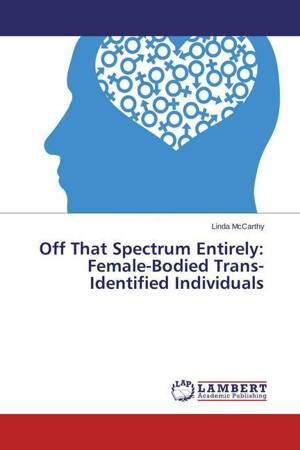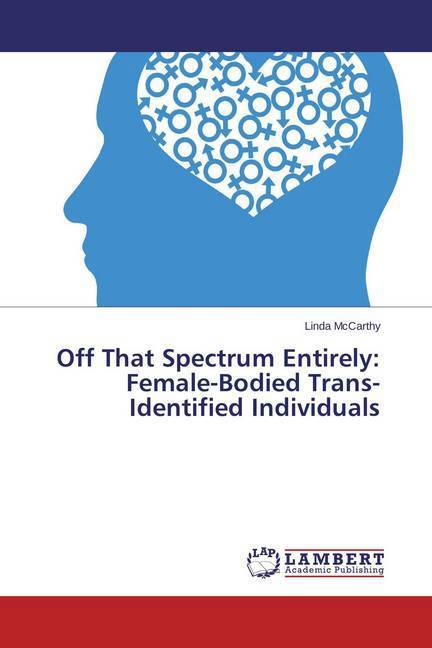
- Afhalen na 1 uur in een winkel met voorraad
- Gratis thuislevering in België vanaf € 30
- Ruim aanbod met 7 miljoen producten
- Afhalen na 1 uur in een winkel met voorraad
- Gratis thuislevering in België vanaf € 30
- Ruim aanbod met 7 miljoen producten
Off That Spectrum Entirely: Female-Bodied Trans-Identified Individuals
Female-Bodied Trans-Identified Individuals
Linda McCarthy
Paperback | Engels
€ 98,45
+ 196 punten
Omschrijving
In recent years, transgender has evolved to name the identities and experiences of those who transgress traditional categories of sex and gender. Unlike man and woman, where the boundaries of identity have clear and distinct (although contested) definition, the borders of transgender identity remain nebulous. Because transgender people challenge the notion that there are only two genders, deconstructing gender therefore has tremendous implications for the division of power in our culture, which is dependent upon the binary-gender system commonly accepted as "normal" and "natural". Therefore, it is important to examine not only who chooses to claim this identity and their process of doing so, but how they construct and make meaning of gender in their daily lives. Through examining data from in-depth interviews and an extended focus group, this study focuses on female-bodied individuals who identify themselves as transgender but do not wish to physically change their bodies through surgery, hormones, or other methods.
Specificaties
Betrokkenen
- Auteur(s):
- Uitgeverij:
Inhoud
- Aantal bladzijden:
- 276
- Taal:
- Engels
Eigenschappen
- Productcode (EAN):
- 9783659509438
- Verschijningsdatum:
- 4/08/2014
- Uitvoering:
- Paperback
- Afmetingen:
- 150 mm x 220 mm
- Gewicht:
- 430 g

Alleen bij Standaard Boekhandel
+ 196 punten op je klantenkaart van Standaard Boekhandel
Beoordelingen
We publiceren alleen reviews die voldoen aan de voorwaarden voor reviews. Bekijk onze voorwaarden voor reviews.







